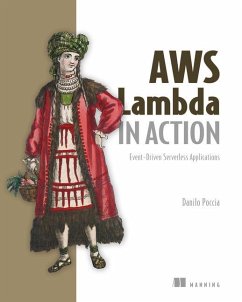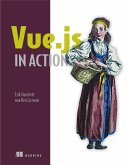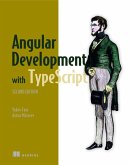Key Features: â Example-driven tutorials â Solid introduction to security â Teaches readers to create applications in AWS Â AUDIENCE Readers will have basic knowledge of JavaScript. Most examples are provided in JavaScript and Python. No prior experience with AWS needed.
Hinweis: Dieser Artikel kann nur an eine deutsche Lieferadresse ausgeliefert werden.
Hinweis: Dieser Artikel kann nur an eine deutsche Lieferadresse ausgeliefert werden.








